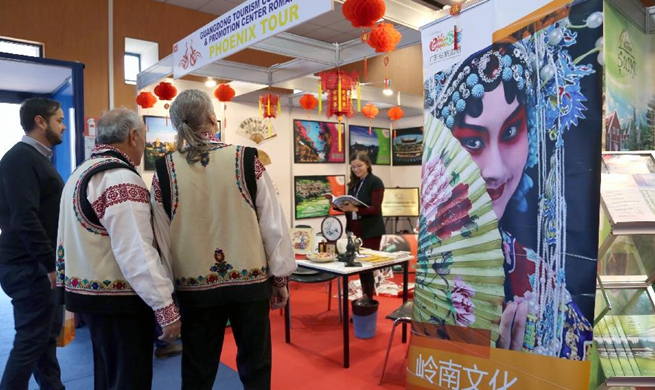KUNMING, July 5 (Xinhua) -- On a steep hill, Yu Shengyi and his wife are busy picking fresh mulberry leaves which will be taken home to feed their silkworms. In two weeks, Yu will sell around 100 kilograms of silkworm cocoons and earn more than 4,500 yuan (about 680 U.S. dollars).
Yu, 34, is a farmer in Longchuan county in China's Yunnan Province. The county is an ideal place to grow mulberry trees and breed silkworms due to its mild weather and abundant rainfall.
Yu's five-member family used to grow sugarcane on their mere one hectare of land, earning just 30,000 yuan a year, before deciding to raise silkworms.
Last year, Yu's family earned 63,000 yuan solely through raising the silk-producing larvas.
In January 2015, Yu and other villagers started to grow mulberry trees and feed silkworms when the local government and a company jointly launched a mulberry plantation and sericulture development program in the county at the end of 2014.
Having no experience in the mulberry silk industry, Yu found it difficult to manage his mulberry land before the DH Silco Enterprise Company sent professionals to train him and other villagers.
"We did not know how to maintain appropriate temperature and humidity in the cocoonery. We also learned we shouldn't use pesticides which lowers the quality of the mulberry leaves," Yu recalled.
Besides providing technical guidance, the company also signed purchase contracts with silkgrowers with a favorable price to guarantee stable incomes.
"Local farmers used to raise silkworms, but their incomes could not be guaranteed due to disordered market competition," said Yin Changzeng, a senior official with the Longchuan agricultural bureau. "A favorable purchase price will reassure the silkgrowers."
Over the past three years, about 7,800 households in Dehong joined the mulberry plantation program and planted nearly 3,500 hectares of mulberry trees, said Zheng Shanhong, founder and chairman of the company.
"Last year, we paid more than 13 million yuan for silkworm cocoons purchased from silkgrowers," said Zheng.
"We will plant more mulberry trees as the mulberry silk industry is green and sustainable and it helps increase locals' incomes," said Cun Daichun, a Longchuan official.
By the end of 2018, Longchuan will plant a total of 4,000 hectares of mulberry trees.

















